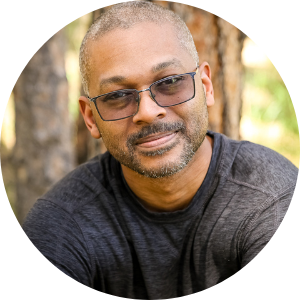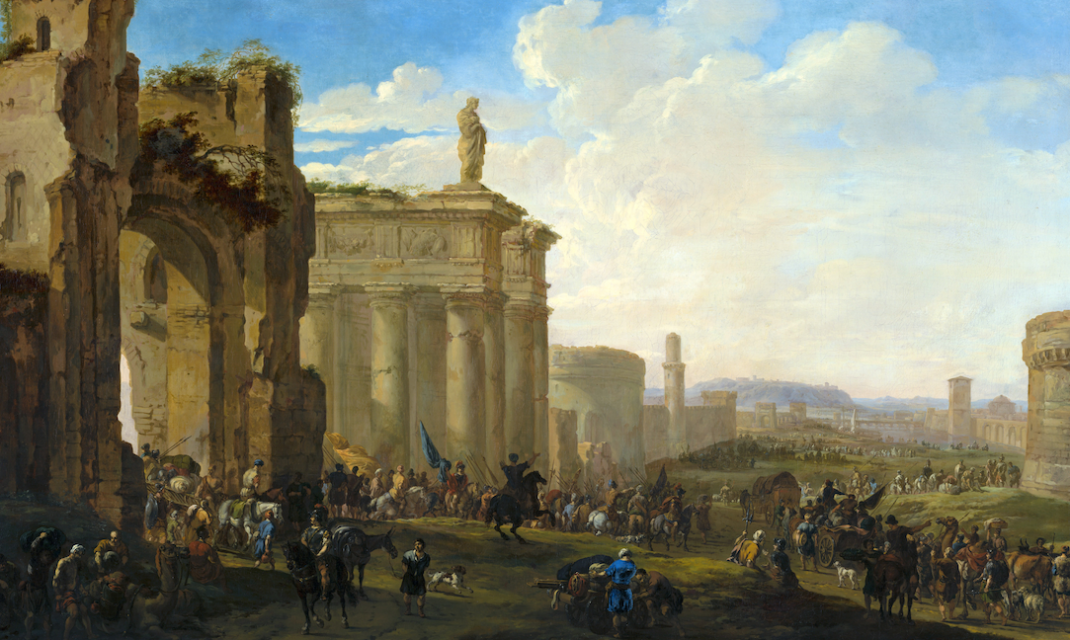Throughout Lent, guest blogger Dr. Junius Johnson will be reflecting on the season through the lens of C.S. Lewis’s great series, The Chronicles of Narnia. We invite you to join him in revisiting this world of childhood imagination even while you prepare your hearts to rejoice again in the salvation Christ worked at the cross.
In Prince Caspian, we return to Narnia 1,300 years after we last left it. And so, unsurprisingly, we find the world greatly changed: Cair Paravel, once on a peninsula, is now on an island. The River Rush has carved a deep gorge for itself. But the biggest change is that it is now the country of the Telmarines.
Telmarine Narnia is not a place you would want to go. We long to go to Narnia because of the things Lucy identifies in The Lion, the Witch, and the Wardrobe: magic and fauns and such. We want to meet the figures of mythology and dance with the creatures of folklore; we want to live the plots of fairy tales and talk to animals. The Telmarines have banished all of that, making Narnia more or less like our world, where beavers don’t usually talk at all. They have changed it from a country for men to be king of to a country of men. In short, Telmarine Narnia is a disenchanted land. And so the Narnian Civil War and the rise of King Caspian X is a story about the struggles and trials of re-enchanting the world.
We want to meet the figures of mythology and dance with the creatures of folklore; we want to live the plots of fairy tales and talk to animals.
Enchantment is deep magic, and so there is a steep price to be paid. Fairies traffic in blood and tears, and we must pay these in buckets if we would restart the world’s wonder-engine. Many true Narnians will lose their lives to this war, none would come out unscathed, and Narnia is bathed in centuries of tears from their long years in hiding. But in the chosen time appointed by Aslan for the restoring of the kingdom, it is the faith of three people that above all returns Narnia to her true self.
The first is Dr. Cornelius, half a dwarf but as true a Narnian as any we meet in the series. He knows for a fact that the old stories are true: his own blood tells him that, and he has learned magic, and he is in possession of Queen Susan’s horn. But he is not sure if it still exists, or if the work the Telmarines set out to do (rooting out all of the Old Narnians) has been fully successful. He is close to despair, and has given in to it several times. But there is always something that gets his hopes up again, even though, if there is any Old Narnia left, he has been shut out of it. He has paid a terrible price for his devotion: he says of his finding of the horn: “Many terrors I endured, many spells did I utter, to find it, when I was still young” (Prince Caspian, ch. 5). And yet, after sacrificing so much to get it, he has held on to it for years and never blown it. How great the temptation must have been to put it to his lips and force Old Narnia to reveal itself! But he did not, because he believed all of the old stories, because he respected the rules enough not to invoke such great magic lightly. The blowing of the horn is a great moment in the history of Narnia every time it happens; one does not force such moments to oneself. Rather, the task is to watch and pray, so that you will be ready when you find yourself in such a moment.
How great the temptation must have been to put it to his lips and force Old Narnia to reveal itself! But he did not, because he believed all of the old stories, because he respected the rules enough not to invoke such great magic lightly.
Caspian himself is the second. He is the heir to all the vanity of the Telmarine kingdom. Even though it is an inheritance he cannot claim because he will be ousted by Miraz’s legitimate child, nevertheless, it would be the most natural thing in the world for him to support Telmarine rule and Telmarine values. But long before his life is ever placed in danger, when faced with the far deeper conflict between the dreams of childhood and the “realities” of the grown-up world, he sides with the dreams. He chooses Aslan when he is not even sure if there is any such thing as Aslan; he values fauns over politics. When faced with both the reality of Old Narnia and the possibility that it no longer exists, he accepts his responsibility to be as like the kings of old as he can be. This is why, even though he is a Telmarine, he can become king of Old Narnia, and the first of the dynasty that would last to the end of its days: because he valued the old things over the new things, and held the truth of his country in his heart, even before he knew what it would cost him.
When faced with both the reality of Old Narnia and the possibility that it no longer exists, he accepts his responsibility to be as like the kings of old as he can be.
The third is Caspian’s first nurse, who faithfully and simply kept the stories alive, even though it meant that, had not Aslan intervened, she would have died in poverty, surrounded by the disappointment of the world of men. She was the guardian of a powerful truth, and she found herself in a position to deliver it to the person who needed it most, and whom the land most needed to have it. Dr. Cornelius did not win Caspian to allegiance to Old Narnia; that was already in his heart, placed there and fostered by the stubborn steadfastness of the nurse. She first kept the flame alive, she first enkindled in the heart of the little prince the love that would set the world on fire and awaken Narnia’s former glory.
. . . she first enkindled in the heart of the little prince the love that would set the world on fire. . .
I am challenging myself this Lent to keep these three in view. At times in my life, I will be called to be like Dr. Cornelius, paying a steep price for ancient glories and guarding the sputtering flame of hope in my own heart; at times I will be called to be like Caspian, choosing to forsake the riches and power to which I could lay claim in this world for the truth of a better world, now lost to us, but able to be returned to us by the power of the lion. But every day, every single day, I am called to be like the nurse, tending to the faith in others with quiet certitude, regardless of the cost, willing, if need be, to die in obscurity, because I know that whether the bed he comes to me on is my sickbed or my deathbed, he will come, and in his coming is the culmination of all my joy.

Junius Johnson is an independent scholar, teacher, musician, and writer. He is the executive director of Junius Johnson Academics, through which he offers innovative classes for both children and adults that aim to marry the sense of wonder with intellectual rigor. An avid devotee of story, he is especially drawn to fantasy, science fiction, and young adult novels. He performs professionally on the french horn and electric bass. He holds a BA from Oral Roberts University (English Lit), an MAR from Yale Divinity School (Historical Theology), and an MA, two MPhils, and a PhD (Philosophical Theology) from Yale University. He is the author of 4 books, including The Father of Lights: A Theology of Beauty. An engaging speaker and teacher, he is a frequent guest contributor to blogs and podcasts on faith and culture, and is a member of The Cultivating Project. Explore his work at juniusjohnson.com.

